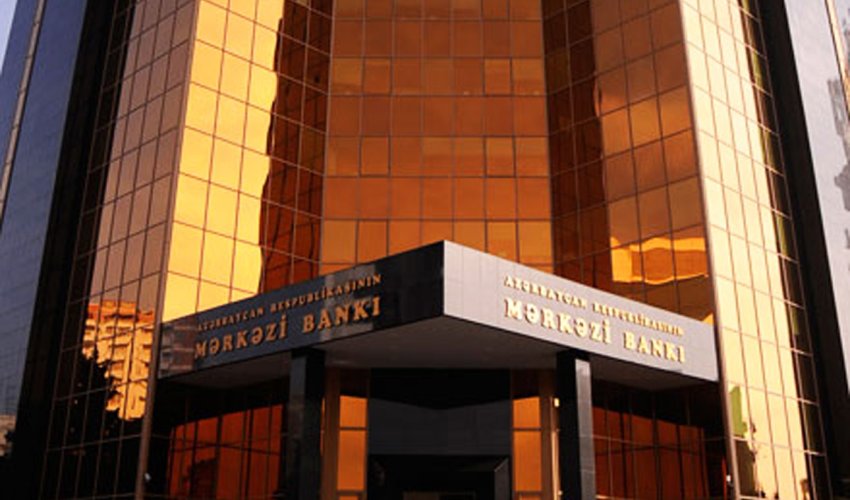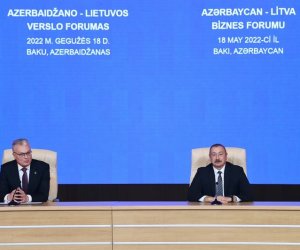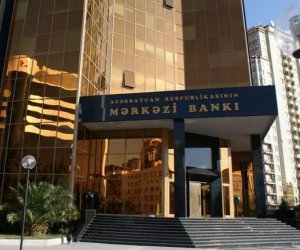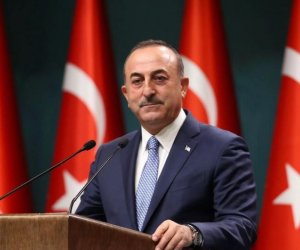Azerbaijan cuts its currency loose, triggering 32 pct plunge

Azerbaijan withdrew support for its currency, the manat, on Monday, triggering a plunge of 32 percent against the dollar, after burning through over half its foreign currency reserves to defend it against the effect of falling oil prices.
Baku's decision followed similar moves by crude exporters Russia and Kazakhstan and underscored the pressure that low prices are exerting on the public finances of oil-dependent countries in the former Soviet Union.
The price of Brent crude has fallen by more than two-thirds since mid-2014 and plumbed 11-year lows on Monday on renewed worries over a global oil glut.
"The central bank has decided to switch to a floating manat rate from Dec. 21," it said in a statement. "The manat rate will be determined by supply and demand on the forex market."
It said it was acting to preserve foreign currency reserves, which were now at a "critical level". On Nov. 30, reserves stood at $6.2 billion, down from $14.9 billion a year earlier as a result of currency interventions.
The bank said it had been forced to respond to an increase in negative external shocks and to protect the economy's competitiveness as well as the balance of payments, noting that many of Azerbaijan's trading partners had devalued their currencies dramatically.
In February, the bank had allowed the manat to fall 33.5 percent against the dollar and 30 percent against the euro after abandoning a dollar peg and adopting a dollar-euro basket to manage the exchange rate.
SUPPORT TO BANKS
The central bank chief Elman Rustamov promised to support the banking sector and said banks had already demonstrated resistance to a new exchange rate.
"The banking sector has demonstrated resilience" following the introduction of the new exchange rate, Rustamov told state television channel AzTV. "We plan additional complex measures to strengthen stability and resilience. It includes easing the base of regulations," he said.
Rustamov said support measures would include "opportunities to raise their capitalisation and liquidity as well as improving their assets and creating additional reserves." He added that the bank would also work on measures to support depositors, who have deposits in local currency.
MORE FALLS TO COME?
Independent economic expert Samir Aliyev said: "We may see another devaluation if the oil price falls further."
Vakhid Akhmedov, a member of the parliamentary economic policy committee, told Reuters: "The manat has not yet found its bottom ... If the oil price is much lower than $50 per barrel for a long time, I don't rule out that we may revise the state budget."
Chris Weafer, a partner at the Macro-Advisory consultancy, said collapsing oil prices meant the decision to let the manat float was "long overdue".
He said he thought Azeri authorities had delayed acting so as not to risk financial sector disruption or a public backlash ahead of a parliamentary election last month, which allies of President Ilham Aliyev easily won.
"(This) has led to a great deal of uncertainty about the economy and slowed investment," Weafer told Reuters. "It has also been an expensive exercise in that the budget is likely to have shifted from a small surplus in 2014 to a deficit close to 7 percent of GDP this year. That deficit is mostly due to the delayed devaluation."
Inflation could now rise as imported goods and services became costlier, he said, which in turn may force the central bank to raise interest rates to curb inflation and prevent capital outflows.
Weafer said Turkmenistan may also have to take similar action "very soon", for similar reasons.
The official dollar rate of the Kazakh currency, the tenge, which has also been allowed to float, has plunged 12 percent this month alone, even as money market rates soared.
www.ann.az
Similar news
Similar news




































 Photo
Photo 



 Video
Video 

